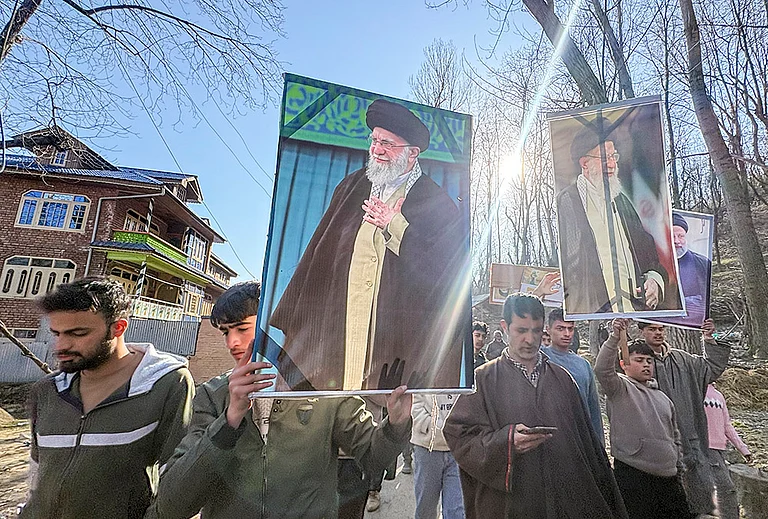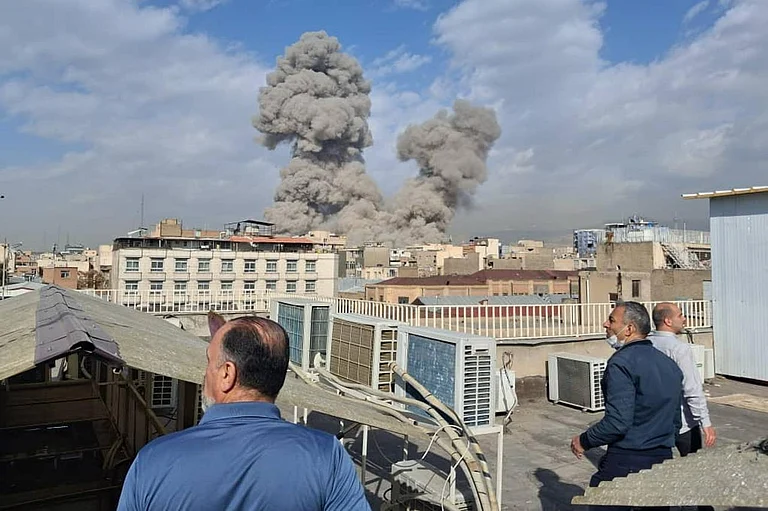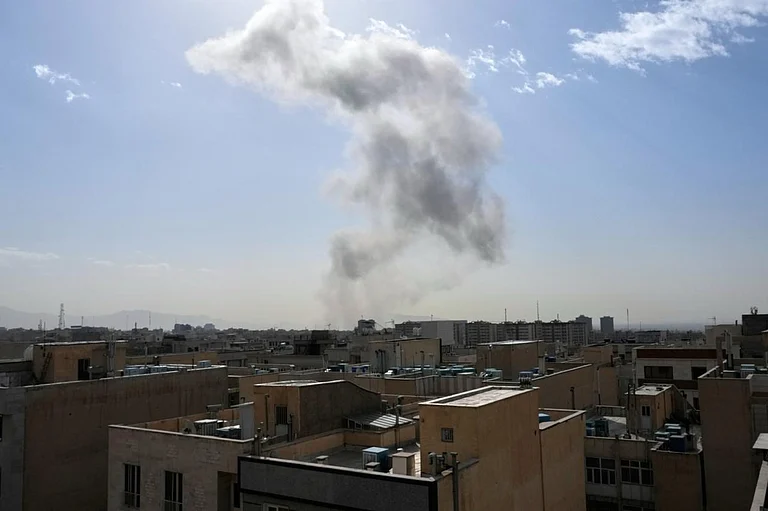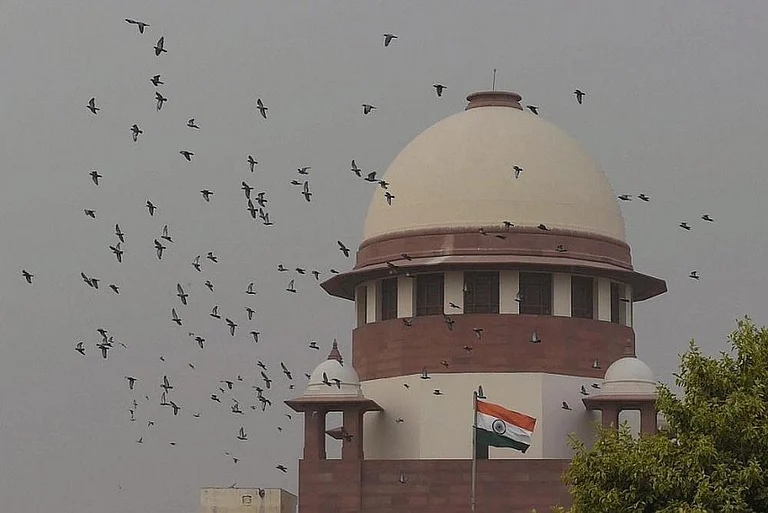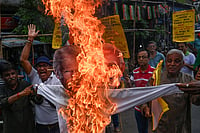Maharashtra farm animal trade halts over Qureshi protest.
Drought-hit Marathwada farmers' cattle become unsellable.
Rural economy reels with Rs 2,000 crore lost during strike.
Since June 14, the Qureshi community of Maharashtra has been on indefinite strike, stopping cattle trade completely citing various reasons—mob lynching by self-styled cow vigilantes, harassment of meat traders and transporters by police and losses due to illegal obstructions on transporting dairy animals. The community says the Maharashtra Animal Preservation (Amendment) Act, 2015, has been shoddily implementation and is biased against the community, which has adversely affected the livelihood of the state’s 15 lakh strong Qureshi community engaged in the meat and farm animal trade.
The All India Jamiatul Quresh Action Committee is leading the protests in Maharashtra, whose latest action on August 9 was to lead thousands of Qureshi traders and citizens, along with some farmers, in a silent protest in Nanded district of the Marathwada region.
More than dozens such protests have been held in various districts; however, it is the eight districts of Marathwada that have been the epicenter of extensive agitations. In Chhatrapati Sambhaji Nagar (earlier Aurangabad), Beed, Latur, Dharashiv (earlier Osmanabad), Jalna, Parbhani, Nanded and Hingoli, a drought prone region due to low rainfall, also has a high suicide rate among farmers.
Low rainfall makes it extremely difficult for farmers to provide fodder and feed to their farm animals, forget the 20 liters of water each livestock needs in a day. Cattle not ready for agricultural use or milking purposes become liabilities for farmers, and they have traditionally preferred to sell it off.
Else, the animal becomes a liability for the farmers, and that is why the term pashudhan (animal wealth) is in provenance: selling it off provides instant financial relief to the struggling farmers, or cash they need for emergencies. But with every cattle market in Maharashtra shuttered due to the indefinite strike of the butchers, farmers no longer have a place to sell their cows.
Kalidas Apet, a farmer from Beed district and president of the Sheakari Sanghatana (Farmers’ Organisation) told Outlook, “Farmers are in total distress. They have nowhere to sell their cattle. Cattle is like an ATM for farmers, it helps them in any emergency situation at home, be it hospitalisation or education of their children. Trade in cattle is an important aspect of the rural economy and it should be seen that way—not as a religious weapon.”
Apet says that over centuries, the trade in milch cattle has strengthened farmers’ relationship with the Qureshis, who even provide them with assistance in difficult times. “If I need urgent money for my daughter’s education who is studying in another city, the Kahtik (Qureshi) will directly send required money to her through PhonePe or GPay, and come later to take cattle from our home,” he says.
Not only cattle markets but the rural economy around it, which comprises leather manufacturing, industries related to animal bones and horns, the trade in nails, halters, nooses, etc., has fallen into an economic crisis. The marginalised communities whose members mostly work in these industries are facing tremendous hardship.
The Maharashtra Animal Preservation (Amendment) Act 2015 allows trade of every kind of cattle, but slaughter only of buffaloes. However, traders say that even legal trade in buffaloes has become extremely difficult ever since the enactment.
Aarif Chaudhary, Maharashtra state president of the Jamitul Quresh, told Outlook, “The state government should ensure effective implementation of the animal preservation law. It is being misused by Hindu right-wing groups, who stop traders selling and buying buffaloes, which are not banned under this law. Many times, the police also act under pressure from such groups. Even if gau rakshaks or citizens find cows being sent to slaughter, they should complain to the police—not take the law into their own hands.”
According to Chaudhary and half a dozen Qureshi traders the Outlook spoke to, the implementation of the 2015 law has been shoddy and biased towards the Muslim communities. “If gau rakshaks find Hindu farmers transporting cattle, they are not harassed like the Qureshis are. It is believed that they are transporting cattle for authorised sales, while our community people are made to pay hefty fines and face police cases. Even our animals authorised for sale with proper documentation and all legal compliances are often curbed by violent mobs,” Chaudhary said.
The state government has been largely uresponsive to the agitation and difficulties of the Qureshis—and the farmers. State Finance Minister Ajit Pawar has promised to look into this issue, but nothing concrete has materialised so far. Nitin Gadkari, the Nagpur-born Union Minister for Road Transport and Highways has asked a delegation of Qureshis to meet him in Delhi to understand the issues they are raising.
With the cattle trade on hold across in Maharashtra, the traders have suffered losses of over Rs 2,000 crores, Qureshi traders told this reporter. In 2024, India exported buffalo meat worth US $3740.53 million. India has the largest population of milch animals, according to the ministry of commerce and industry at the Centre.









